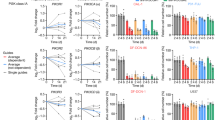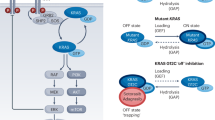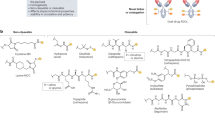Abstract
Recombinant urate oxidase (rasburicase) lowers uric acid levels rapidly to very low levels at the labeled dose of 0.15–0.2 mg/kg daily for 5 days. Our past experience showed that a lower dose (3 mg) lowered uric acid levels sufficiently in most patients. A retrospective review was conducted to determine the effect of a fixed 3 mg dose of rasburicase in 43 adult patients with cancer undergoing hematopoietic stem cell transplantation or receiving chemotherapy who had elevated or rising uric acid levels (6.4–16.8 mg/dl; median 9.6). Six patients received a second dose of rasburicase (3 mg in four patients and 1.5 mg in two patients) 24 h later. Patients received allopurinol, adequate hydration, as well as other supportive therapy as required. Uric acid levels declined by 6–95% (median 43%) within the first 24 h after rasburicase administration, and levels at 48 h were 9–91% (median 65%) lower than the baseline levels. Serum creatinine changed by ⩽10% in 21 patients, increased by >10% in four patients and decreased by >10% in 18 patients. No significant renal dysfunction developed in any of the patients. We conclude that rasburicase is effective in lowering uric acid levels at a fixed dose of 3 mg, which is much lower than the recommended dose.
This is a preview of subscription content, access via your institution
Access options
Subscribe to this journal
Receive 12 print issues and online access
$259.00 per year
only $21.58 per issue
Buy this article
- Purchase on Springer Link
- Instant access to full article PDF
Prices may be subject to local taxes which are calculated during checkout



Similar content being viewed by others
References
Davidson MB, Thakkar S, Hix JK, Bhandarkar ND, Wong A, Schreiber MJ . Pathophysiology, clinical consequences, and treatment of tumor lysis syndrome. Am J Med 2004; 116: 546–554.
Smith GW, Wright V . Allopurinol. Br J Clin Pract 1987; 41: 710–711.
Wu XW, Lee CC, Muzny DM, Caskey CT . Urate oxidase: primary structure and evolutionary implications. Proc Natl Acad Sci USA 1989; 86: 9412–9416.
Leach M, Parsons RM, Reilly JT, Winfield DA . Efficacy of urate oxidase (uricozyme) in tumour lysis induced urate nephropathy. Clin Lab Haematol 1998; 20: 169–172.
Bayol A, Capdevielle J, Malazzi P, Buzy A, Bonnet MC, Colloc'h N et al. Modification of a reactive cysteine explains differences between rasburicase and uricozyme, a natural Aspergillus flavus uricase. Biotechnol Appl Biochem 2002; 36: 21–31.
Goldman SC, Holcenberg JS, Finklestein JZ, Hutchinson R, Kreissman S, Johnson FL et al. A randomized comparison between rasburicase and allopurinol in children with lymphoma or leukemia at high risk for tumor lysis. Blood 2001; 97: 2998–3003.
Coiffier B, Mounier N, Bologna S, Fermé C, Tilly H, Sonet A et al. Efficacy and safety of rasburicase (recombinant urate oxidase) for the prevention and treatment of hyperuricemia during induction chemotherapy of aggressive non-Hodgkin's lymphoma: results of the GRAAL1 (Groupe d'Etude des Lymphomes de l'Adulte Trial on Rasburicase Activity in Adult Lymphoma) study. J Clin Oncol 2003; 21: 4402–4406.
Lee AC, Li CH, So KT, Chan R . Treatment of impending tumor lysis with single-dose rasburicase. Ann Pharmacother 2003; 37: 1614–1617.
Hummel M, Buchheidt D, Reiter S, Bergmann J, Hofheinz R, Hehlmann R . Successful treatment of hyperuricemia with low doses of recombinant urate oxidase in four patients with hematologic malignancy and tumor lysis syndrome. Leukemia 2003; 17: 2542–2544.
Trifilio S, Tallman M, Singhal S, Gordon L, Evens A, Mehta J . Low-dose recombinant urate oxidase (rasburicase) is effective in hyperuricemia. Blood (ASH Annu Meeting Abstr) 2004; 104: 3312.
Annemans L, Moeremans K, Lamotte M, Garcia Conde J, van den Berg H, Myint H et al. Pan-European multicentre economic evaluation of recombinant urate oxidase (rasburicase) in prevention and treatment of hyperuricaemia and tumour lysis syndrome in haematological cancer patients. Suppl Care Cancer 2003; 11: 249–257.
Wossmann W, Schrappe M, Meyer U, Zimmermann M, Reiter A . Incidence of tumor lysis syndrome in children with advanced stage Burkitt's lymphoma/leukemia before and after introduction of prophylactic use of urate oxidase. Ann Hematol 2003; 82: 160–165.
Schrag D . The price tag on progress – chemotherapy for colorectal cancer. N Engl J Med 2004; 351: 317–319.
Author information
Authors and Affiliations
Corresponding author
Rights and permissions
About this article
Cite this article
Trifilio, S., Gordon, L., Singhal, S. et al. Reduced-dose rasburicase (recombinant xanthine oxidase) in adult cancer patients with hyperuricemia. Bone Marrow Transplant 37, 997–1001 (2006). https://doi.org/10.1038/sj.bmt.1705379
Received:
Revised:
Accepted:
Published:
Issue Date:
DOI: https://doi.org/10.1038/sj.bmt.1705379
Keywords
This article is cited by
-
Analyse et critique des recommandations britanniques 2015 de prise en charge du syndrome de lyse tumorale de l’adulte
Médecine Intensive Réanimation (2017)
-
Das Tumorlysesyndrom
Der Nephrologe (2016)
-
Prophylaxe und Therapie des Tumorlysesyndroms
Im Focus Onkologie (2016)
-
Risk of Anaphylaxis with Repeated Courses of Rasburicase: A Research on Adverse Drug Events and Reports (RADAR) Project
Drug Safety (2015)
-
Recognizing and managing the expanded risk of tumor lysis syndrome in hematologic and solid malignancies
Journal of Hematology & Oncology (2012)



